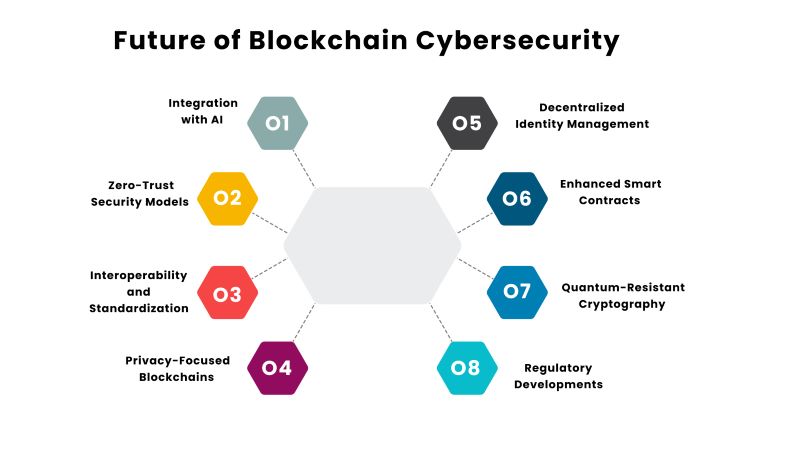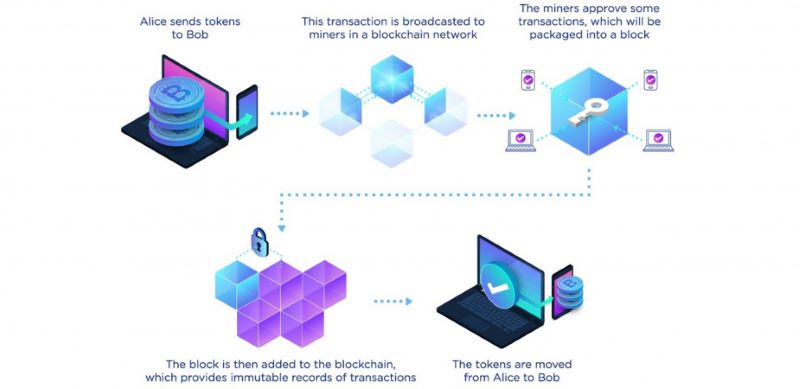National Security Agency and Blockchain Technology: The National Security Agency (NSA) and blockchain technology represent two pivotal forces in the modern digital era, each with its unique capabilities and challenges. The NSA, a cornerstone of U.S. national security, is responsible for safeguarding the nation’s intelligence and ensuring the protection of critical infrastructure.
On the other hand, blockchain technology, known for its decentralized and immutable nature, has revolutionized various sectors, from finance to supply chain management. The intersection of the National Security Agency and Blockchain Technology presents a complex and multifaceted relationship, where the potential for blockchain to enhance national security is immense, yet it also brings forth significant challenges and risks that must be carefully managed.
Blockchain Technology Overview
Blockchain technology is built on several fundamental principles that make it a powerful tool for securing and managing data. At its core, blockchain operates as a distributed ledger, where information is recorded across a network of computers, ensuring that no single entity has complete control. This decentralized approach makes the data stored on a blockchain immutable, meaning that once information is added, it cannot be altered or deleted. Additionally, blockchain’s transparency allows all participants in the network to view and verify transactions, fostering trust and accountability.

National Security Agency and Blockchain Technology
The applications of blockchain are diverse and continue to expand. Initially known for powering cryptocurrencies like Bitcoin, blockchain has since found use in supply chain management, where it ensures the authenticity of goods, and in electronic voting, where it provides a secure and transparent voting process. These applications highlight the technology’s potential to enhance security, improve operational efficiency, and reduce costs across various industries.
The NSA’s Interest in Blockchain Technology
The NSA’s interest in blockchain technology stems from its potential to address some of the most pressing challenges in national security. One of the primary reasons for this interest is blockchain’s capability to strengthen cybersecurity. By leveraging blockchain’s decentralized structure, the NSA can enhance the security of its networks, making it more difficult for adversaries to compromise critical systems.
In addition to cybersecurity, blockchain presents opportunities for the NSA in surveillance and intelligence gathering. The technology’s ability to securely record and track data could aid in monitoring activities and collecting intelligence in a manner that is both efficient and resistant to tampering. Moreover, blockchain’s potential to protect sensitive data is of particular interest to the NSA. The agency could use blockchain to safeguard classified information, ensuring that it remains secure even in the event of a breach.
Furthermore, blockchain could play a crucial role in combating money laundering and terrorist financing, two areas of significant concern for national security. By providing a transparent and traceable record of financial transactions, blockchain can help the NSA detect and prevent illicit activities, contributing to a safer and more secure environment.
Potential Benefits of Blockchain for National Security
Blockchain technology offers several benefits that can significantly enhance national security. One of the most critical applications is in protecting critical infrastructure. By using blockchain to secure systems that are vital to the nation’s security, such as power grids and communication networks, the NSA can reduce the risk of attacks and ensure the continued operation of essential services.
Another area where blockchain can make a substantial impact is in enhancing the integrity of elections. Blockchain’s transparency and immutability make it an ideal tool for creating a secure and verifiable voting process, reducing the risk of fraud and ensuring that election results are accurate and trustworthy.

Potential Benefits of Blockchain for National Security
Additionally, blockchain can be used to track and verify identities, which is essential for maintaining national security. Whether it’s verifying the identities of citizens, government personnel, or assets, blockchain’s tamper-proof nature ensures that identity information remains accurate and secure.
Lastly, blockchain can improve intelligence sharing among agencies. By providing a secure and efficient means of sharing information, blockchain can facilitate collaboration between different branches of government, leading to more coordinated and effective national security efforts.
Challenges and Risks of Blockchain for National Security
While blockchain technology offers promising benefits for national security, it also presents several challenges and risks that must be carefully considered. These issues could undermine the effectiveness of blockchain implementations and even introduce new vulnerabilities if not adequately addressed.
Anonymity and Illicit Activities
One of the key features of many blockchain networks is the anonymity they provide to users. While this can be beneficial in protecting privacy, it also poses significant risks, particularly in the context of national security. Anonymity can be exploited by criminals and terrorists to conduct illicit activities such as money laundering, drug trafficking, and financing terrorism.
The NSA must therefore be cautious in adopting blockchain technology, ensuring that robust mechanisms are in place to prevent its misuse while maintaining the balance between privacy and security.
Scalability and Energy Consumption
Scalability is another major concern when considering the use of blockchain in national security. Many blockchain networks struggle to process large volumes of transactions quickly, which could hinder the NSA’s ability to operate efficiently, especially given the massive amount of data the agency handles.
Moreover, blockchain’s high energy consumption, particularly in networks that rely on proof-of-work consensus mechanisms, raises both environmental and cost concerns. For the NSA to effectively use blockchain, solutions that address these scalability and energy efficiency challenges must be developed.

Potential Benefits of Blockchain for National Security
51% Attacks and Other Security Vulnerabilities
Although blockchain is often touted as highly secure, it is not immune to attacks. A notable vulnerability is the risk of a 51% attack, where a group of miners or nodes gains control of more than half of the network’s computing power, potentially allowing them to manipulate transactions and data.
For the NSA, such an attack could have catastrophic consequences, compromising the integrity of critical information. Additionally, other security vulnerabilities, such as smart contract bugs and phishing attacks, could also pose risks. The NSA must implement stringent security protocols and continuously monitor blockchain networks to mitigate these threats.
Lack of Legal and Regulatory Frameworks
The legal and regulatory landscape for blockchain is still in its infancy, particularly concerning its application in national security. The absence of clear and comprehensive regulations can lead to uncertainty and hinder the effective adoption of blockchain technology by the NSA.
Without a robust legal framework, issues such as jurisdictional disputes, data sovereignty, and compliance with international laws may arise, complicating the use of blockchain in national security operations. The development of appropriate regulations, in collaboration with policymakers, legal experts, and international bodies, is crucial for the responsible and effective use of blockchain technology.
The Future of Blockchain and National Security
Looking ahead, blockchain technology is poised to play an increasingly significant role in the field of national security. As the technology continues to evolve, its impact on NSA operations and policies is likely to grow, offering both opportunities and challenges.
In the future, blockchain could become a cornerstone of the NSA’s cybersecurity strategy, providing a secure and resilient framework for protecting critical infrastructure and sensitive data. Its ability to facilitate secure communication and data sharing between agencies could lead to more coordinated and efficient national security efforts. However, as blockchain technology becomes more integrated into national security, it will also necessitate changes in NSA policies and procedures to address the unique challenges it presents, such as privacy concerns, energy consumption, and regulatory compliance.

The Future of Blockchain and National Security
To harness the full potential of blockchain technology responsibly, collaboration between government, industry, and academia will be essential. This collaboration can drive innovation, leading to the development of scalable, energy-efficient, and secure blockchain solutions tailored to the needs of national security. Additionally, by working together, these sectors can help shape the legal and regulatory frameworks necessary for the safe and effective use of blockchain in national security.
In conclusion, blockchain technology offers significant potential for enhancing the National Security Agency’s (NSA) operations, from bolstering cybersecurity to improving surveillance and data protection. Its ability to safeguard sensitive information and combat illicit activities, such as anti-money laundering and counter-terrorism financing, highlights the advantages of its adoption. However, challenges like anonymity, scalability, and the lack of clear legal frameworks complicate its integration into national security.
The relationship between the NSA and blockchain technology remains complex, balancing its potential with inherent risks. Future research should focus on developing scalable, energy-efficient solutions and establishing strong regulatory frameworks.
Don’t miss a beat! Subscribe to our updates and follow Dynamic Crypto Network.

